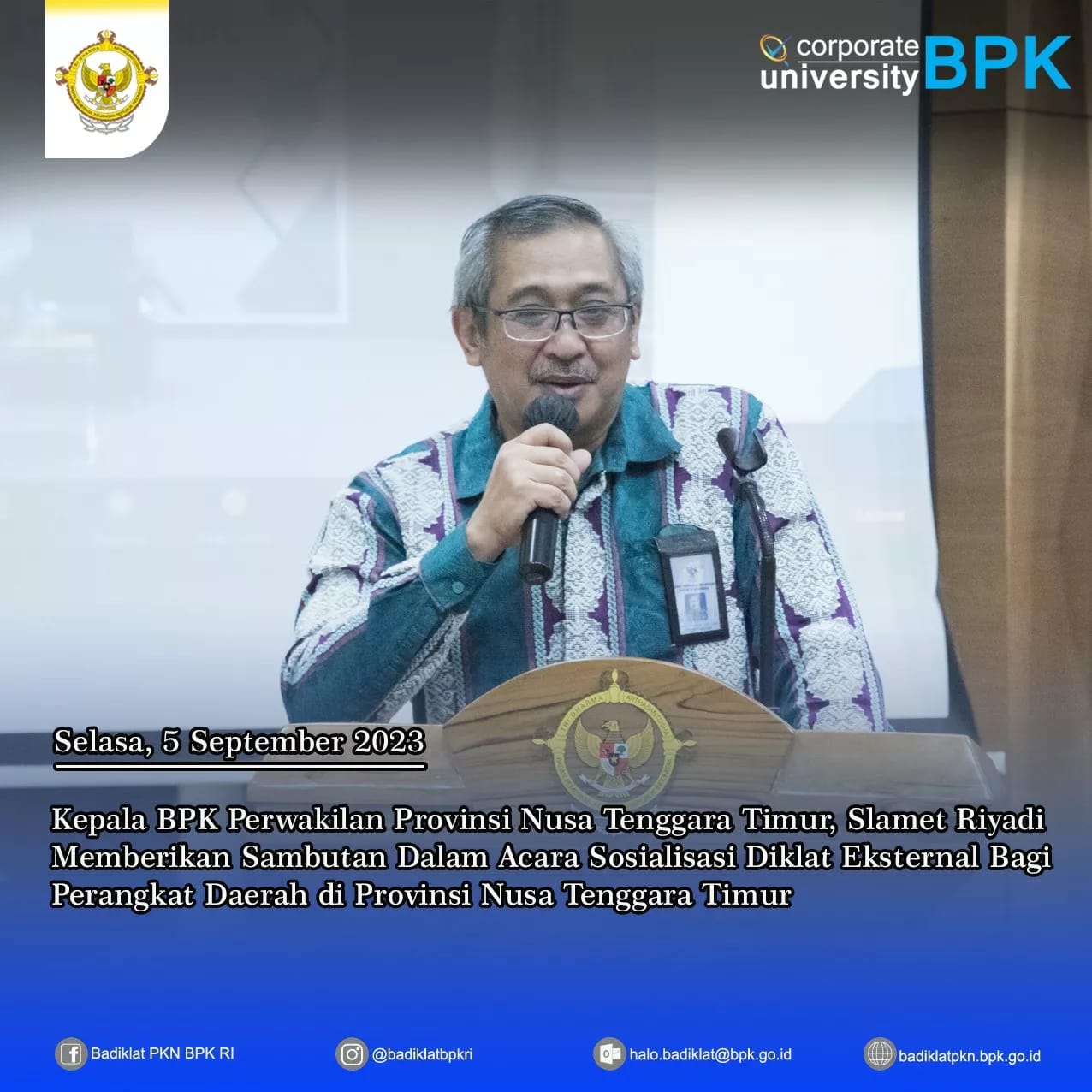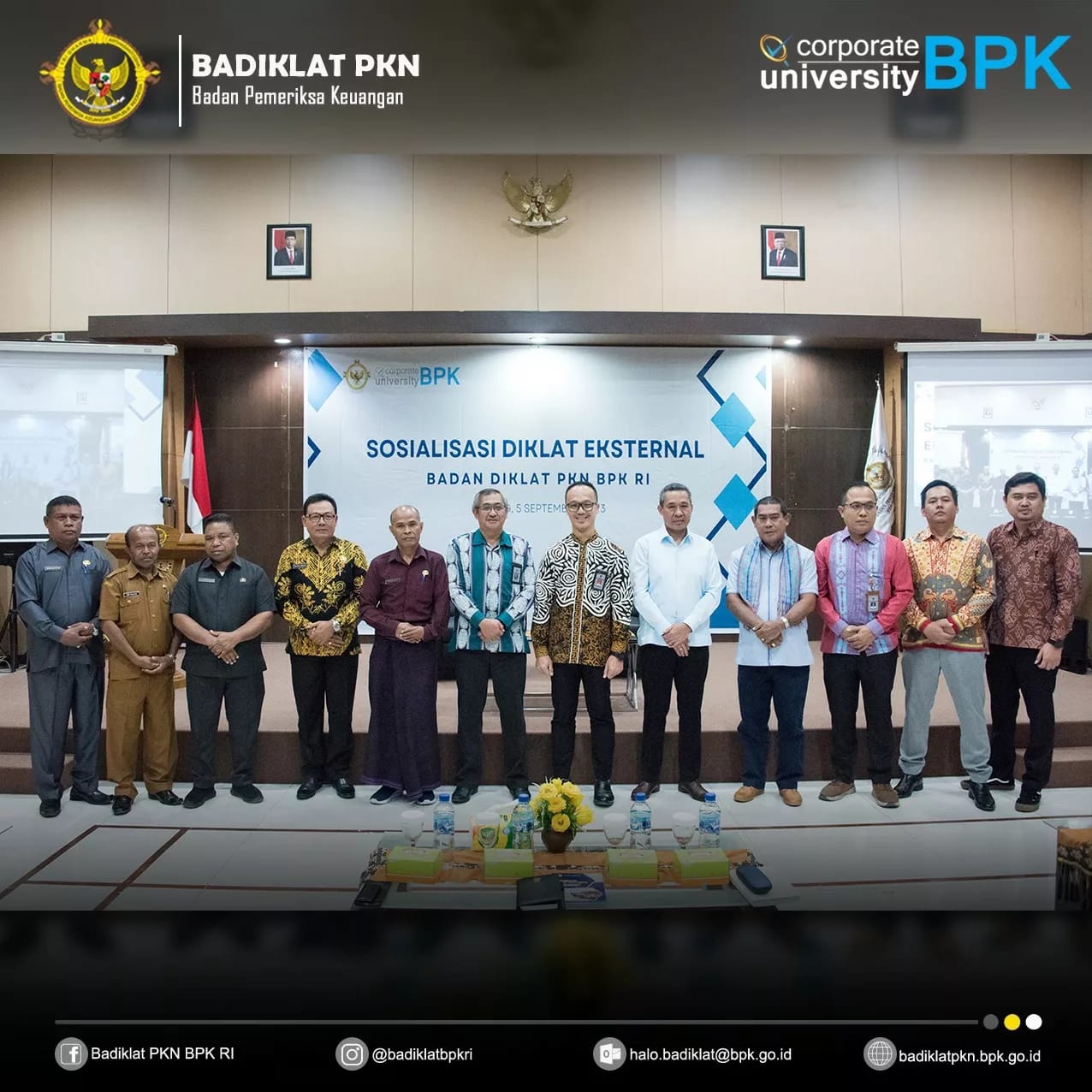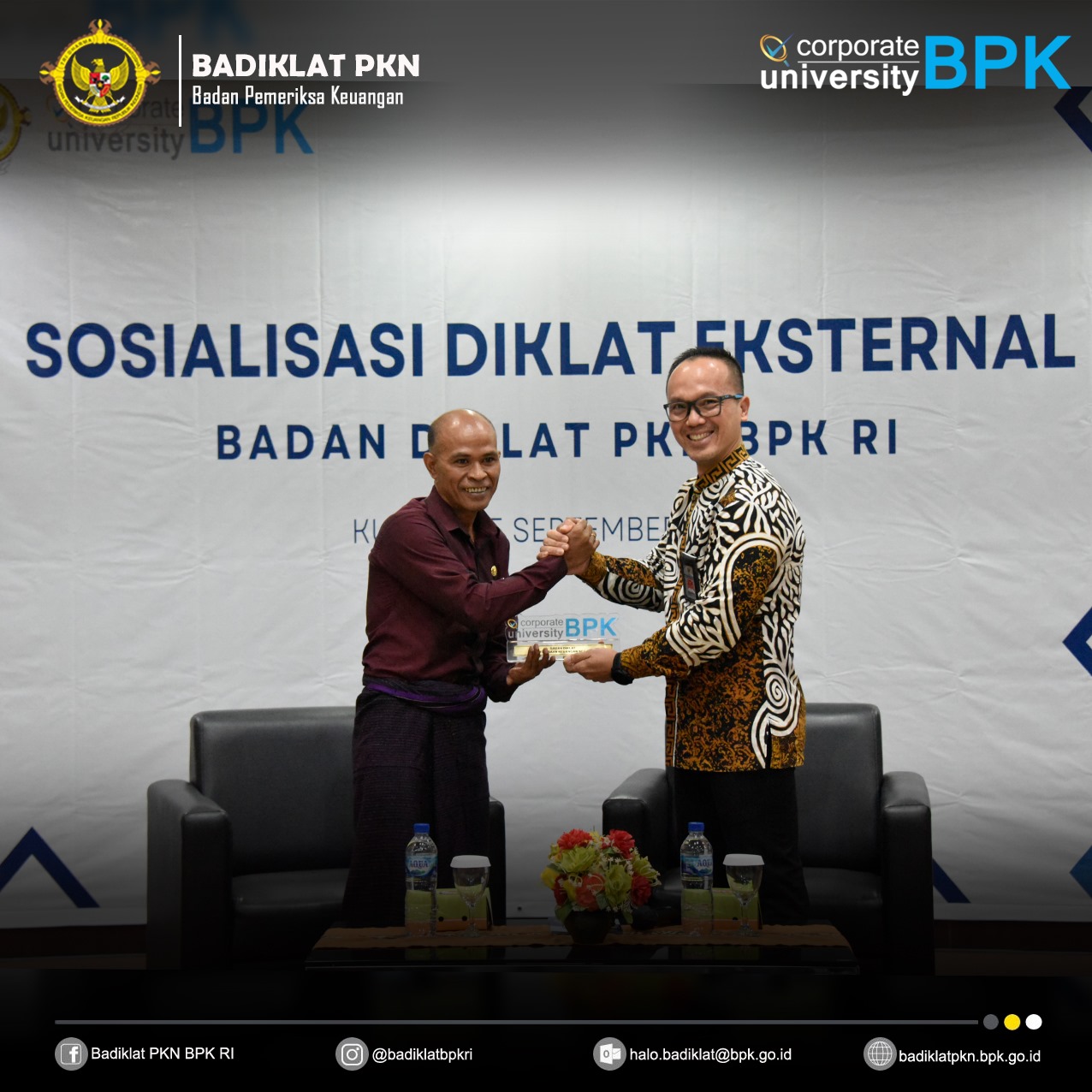 The Training Institute of State Financial Audit (Badiklat PKN) held a hybrid-style State Financial Audit Training Program socialization activity for external parties in the Auditorium of the Audit Board of the Republic of Indonesia’s Representative Office for East Nusa Tenggara Province (BPK Pwk. Prov. NTT), Tuesday (9/5).
The Training Institute of State Financial Audit (Badiklat PKN) held a hybrid-style State Financial Audit Training Program socialization activity for external parties in the Auditorium of the Audit Board of the Republic of Indonesia’s Representative Office for East Nusa Tenggara Province (BPK Pwk. Prov. NTT), Tuesday (9/5).
This socialization activity is an effort by Badiklat PKN to improve audit quality and the management of state/regional finances, including BPK external parties such as State/Regional Financial Managers, Government Internal Supervisory Apparatus (APIP), as well as other parties requiring knowledge and competency development in the field of state financial audit through education and training (Diklat).
The Head of BPK Pwk. Prov. NTT, Slamet Riyadi, began the activity by welcoming its implementation. He stated that it was an effort to improve regional financial governance to become more transparent and accountable. It is done by increasing Regional Government employee competence related to management and accountability for financial management.
NTT Provincial Regional Secretary, Kosmas Damianus Lana, attended as the NTT regional apparatus representative. He expressed his appreciation for the socialization activities organized by Badiklat PKN, stating that the activity was very important in providing an overview of training activities available to regional officials. He hoped that in the future, the implementation of this training would help regional management, especially in the development of NTT Province.
On this occasion, the Director of Education and Training Centre of State Financial Audit in Bali (BDPKN Bali), Bustanul Arifin, briefly conveyed Badiklat PKN’s profile as well as the various external training programs that Badiklat PKN offers. They include State Financial Auditing, State Financial Management, and Soft Skills Development.
It is hoped that the socialization will provide an overview, especially for external parties like regional officials. Besides, it can meet the need for competency development related to audits and management of state finances to achieve the state’s goal of realizing quality and useful state financial governance.


